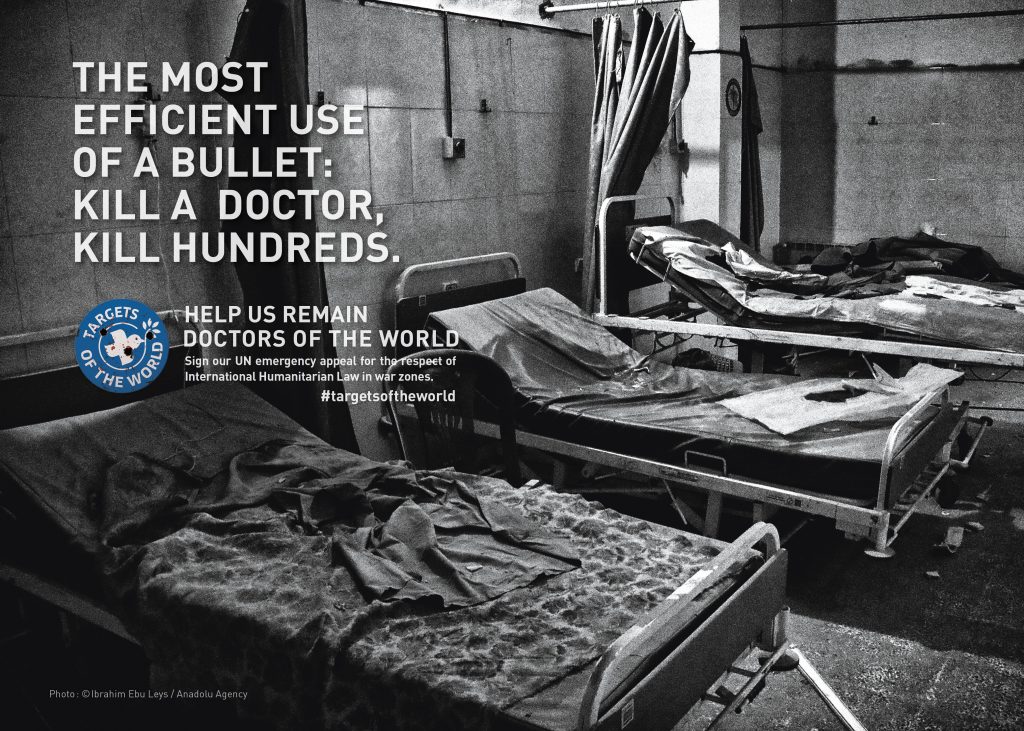World Humanitarian Day: Attacks on health workers must end
Published 17th August 2017
Everyday, aid workers around the world go into dangerous and difficult places, from conflict zones in Syria to drought-hit areas of Somalia. These places are unsafe for everyone but aid workers, such as our medics, often face an extra risk – they are specifically attacked for helping people in need.
As aid organisations come together to mark World Humanitarian Day on 19 August, Doctors of the World is both celebrating aid workers’ bravery and calling for an end to these deplorable attacks. Last year, 101 aid workers were killed, 98 wounded and 89 kidnapped in major assaults on aid projects.
“Attacks on doctors and other aid workers are always unacceptable. We’re seeing a flagrant and widespread disregard for international humanitarian law, which is meant to protect aid workers on the frontline, including by states that have agreed to uphold it,” says Leigh Daynes, Doctors of the World UK’s executive director.
“The way wars are fought has reached a particularly low ebb. Civilians, as well as those seeking to protect them, are paying with their lives.”
Our network’s #TargetsoftheWorld petition calls on the UN to do more to protect health workers in humanitarian crises. Leigh Daynes will also be discussing the risks our medics face at a panel event in London on 17 August that will be streamed online.

In Yemen, which is gripped by both a vicious conflict and a cholera epidemic, there have been 93 attacks on hospitals over the last two years and half of the country’s hospitals are no longer functioning. Doctors of the World is supporting hospitals in the capital Sana’a.
In Syria, there were 338 attacks on hospitals last year alone and six medical units supported by Doctors of the World were targeted. Around 15,000 Syrian medics were forced to flee the country between 2011 and 2015.
Ahmad Alhameed is a Syrian doctor who was jailed and tortured simply for treating wounded people. He fled Syria in 2014 and is now a refugee in the UK, where he volunteers at our London clinic.
“I was detained just because I was saving lives. I’d been going to clinics in towns under government siege, sometimes using secret underground passages to get there,” Ahmad recalls. “It was impossible for me, as a doctor and as a human being, to do nothing when I knew that people were in need.”
Our medics work in dangerous and remote places around the world. Please support them by donating today.
